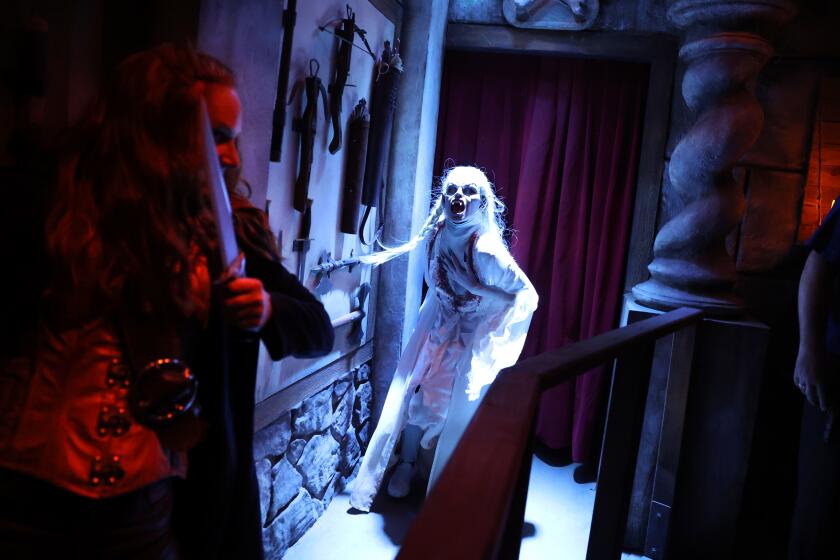The Logbook
I am a volunteer emergency physician at the Sells Indian Hospital, 60 miles west of Tucson on the Tohono O’odham reservation. I glance through the black-and-red book that documents the undocumented: dehydration, heat exhaustion, fracture, radiator fluid ingestion. Lately I see more and more names recorded in this log. I also see more women and children. This morning I see four new entries. One is a wide-eyed 7-month-old boy who stares up at me from his young mother’s arms.
The book I am reading is the hospital’s attempt to keep track of the travelers whose northward journeys end in its emergency room. LOGBOOK is imprinted in gold capital letters on the cover. Above that someone has handwritten Undocumented Immigrants (UDI) with a silver marker, inscribing the abbreviation commonly used to identify these travelers. Inside, each line records in longhand a date, name, diagnosis and disposition.
In the five years that I have volunteered here, the number of people flooding across this reservation has steadily increased. It has been estimated at 1,500 a day, more than half a million a year. To the south there is corruption, overwhelming need and little work. To the north there is a ready supply of low-wage jobs perpetuated by corporate greed, massive campaign contributions and deliberate non-enforcement of immigration laws.
Caught in the middle is the Tohono O’odham Nation. As other parts of the border have become more difficult to breach--more Mexican troops, additional U.S. Border Patrol agents, the volunteer Minuteman Project that has generated so much attention lately with its efforts to deter illegal crossings--this 75-mile stretch of Arizona desert has become a preferred route for the UDIs, drug smugglers and people-smuggling “coyotes.”
The Connecticut-sized reservation is home to the Tohono O’odham, the Desert People. They have been here ever since I’itoi, Elder Brother, made them from desert clay. It is their nation, their sacred land, their ancestral home. But to the UDIs and the smugglers, this land is just a means to an end, an obstacle in their path. This ruggedly beautiful Sonoran Desert is now scarred by their tracks and strewn with their trash, and its cycle of life is disrupted by their inexorable presence. So, too, are the lives of the Tohono O’odham.
This illegal traffic through their land is a tragic, zero-sum game. The resources they spend every day to deal with it are resources not available for other needs, and the Tohono O’odham have more than their share: among the highest rate of diabetes of any people in the world, violence associated with burgeoning cross-border drug trade and unemployment approaching 50%. Police, fire, healthcare and social service budgets have always been strained on the reservation. Now they are more so. The Border Patrol agents cannot stem the flow, and because of orders from Washington, UDIs who need medical care are not taken into custody. That way the cost of their care is shifted from the federal government to local hospitals--and to the Tohono O’odham.
In the emergency room, I see the impact of this flood one life, one visit at a time. I must cut short my evaluation of a 73-year-old Tohono O’odham grandmother with abdominal pain in order to care for the UDIs with heat exhaustion and dehydration in the next two beds. I do not have the antibiotic I want to treat a 3-year-old Tohono O’odham boy with bloody diarrhea. It’s not on the hospital formulary because it is too expensive. I request a specialist’s evaluation for a Tohono O’odham man with facial paralysis. A month later he still hasn’t been seen. Emergencies must be taken care of--and paid for--first, and there are many emergencies involving undocumented immigrants in this small hospital.
I turn the pages in the logbook and note that not every diagnosis is from too long a walk through too hot a desert: MVA, stab wound, dog bite, DOA. With illegal activity comes violence. The coyotes and drug merchants are violent men who value no lives except their own. There is easy money to be made extorting and smuggling people who come north looking for work. So we see MVAs--motor vehicle accidents. Only these are no accidents. They usually are rollovers of speeding cars, trucks and vans whose seats have been torn out so they can be crammed with more undocumented immigrants. It is usually the UDIs who are injured, dead on arrival or dead at the scene. The coyotes often are reported as last seen disappearing into the desert.
Like the Tohono O’odham, everyone along this border is affected by the flood--the ranchers whose animals are killed and whose fences are cut; the hospitals that face closure because of the enormous expense of providing unreimbursed care; the police forces and social service agencies whose budgets are drained; the advocacy groups that put their water stations in the desert; the park rangers who risk their lives trying to protect this fragile desert ecosystem; the Border Patrol agents in their white-and-green SUVs; and even the Minutemen. Like the immigrants, they are all pawns in a game that ultimately lines the pockets of the powerful. Along this border, there are no solutions created by the flood, only consequences.
I hear another ambulance pull up to the back door, and I put down the logbook. The emergency medical technicians are bringing us three more UDIs in need of care, three more entries for the logbook. The flood will not ebb today. It is business as usual, on both sides of the border.
Sign up for The Wild
We’ll help you find the best places to hike, bike and run, as well as the perfect silent spots for meditation and yoga.
You may occasionally receive promotional content from the Los Angeles Times.



